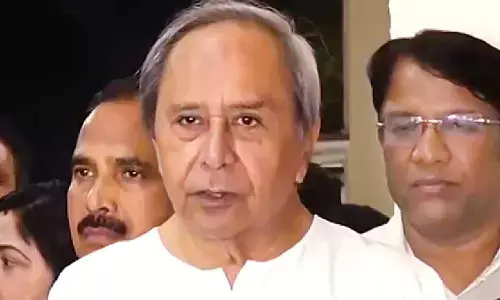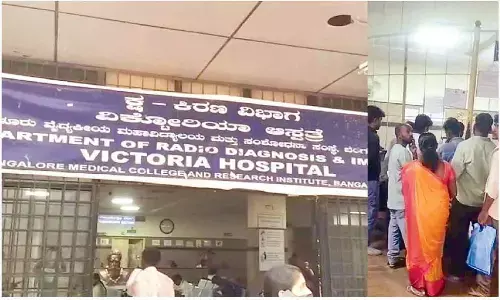NEP to revamp analytics skills

NEP to revamp analytics skills
The National Education Policy has been implemented across the country
The National Education Policy has been implemented across the country. Emphasis has shifted to more of an all round development rather than just sticking to the course domain and acquiring just one set of knowledge. Restricted study often leads a student to pursue one set of jobs which are focusing around the skill. Several parameters like, thinking out of the box, handling any situation, managing a team which are under the ambit of soft skills need revamping which is not a one day process.
These skills need to be incorporated on day to day basis and further assurance should be given to the application of these skills so one's abilities are honed up.
Dr K S Harish, who is a professor of analytics, Siva Sivani Institute of Management spoke with The Hans India and shared his point of view regarding different aspects of this policy.
He said he believed that the new policy has great potential if implemented meticulously. The main objective of NEP is to make our existing education system more powerful, holistic, multidisciplinary and flexible for the future generation with sustainable development in transforming India into a vibrant knowledge society by the year 2030.
This policy may bring a lot of reforms in the learning process and provides a forward looking framework in undergraduate programmes with multiple exit options. With the help of multi-disciplinary concepts in the future we can produce human resources with multiple talents which is the need of the hour.
Where the curriculum in school education is going to focus on experiential learning rather than traditional learning process and there is a possibility of reduction in the theory oriented syllabus and focus more on practical oriented concepts. Learning in their mother tongue languages will ensure the students in learning their mother tongue languages and it is going to connect the next generation to the roots.
Sometimes too many choices trouble the mind and leave us without any specific direction to sail. Guiding the students on this aspect he said that every individual or student will have an objective in their life. Some individuals want to prove themselves as a versatile personality, while others want to become master in one area, this can be achieved through NEP.
It will provide abundant options to the students and at the same time does not force them to take multiple disciplines in their UG or PG level, according to the student interest, calibre and job market opportunity. Also institutions can choose and offer multiple disciplines according to job market trends. This is definitely a good move in the educational system. More awareness programmes on NEP and on its philosophy needs to be conducted and students need to be mentored by the teacher.
Definitive training programmes are required to hone up the skills of the children.
When asked about his opinion on introducing training programmes he said that definitely there should be many training programmes required to teachers to enhance their teaching skills according to the NEP philosophy. More institutions needed to train the teachers. Also more training programmes in the form of value added courses are needed to be introduced in higher education.
Process involved is sometimes not that important as is the result. Process breeds experience which is essential for the growth of the child. He took a dig at the result oriented society and explained that process is often ignored and result is given more importance is something that is being normalised through ages in our society.
It is always the result which matters to the society when the process is what actually matters. Students and their parents need to be enlightened about how process is what really matters and that result is a mere by-product of an efficiently carried out process. Students need to understand the need to break the stereotype of prioritising result over process.
Creative or out of the box thinking has been highlighted in the policy. Some children are born with the skill of thinking beyond the horizon while others need some guidance.
He said that Outcome based education needs to be followed to inculcate creative thinking. While designing the curriculum, the teaching fraternity should focus on the purpose, its application and its utility which will enhance the learning zeal of the student.








